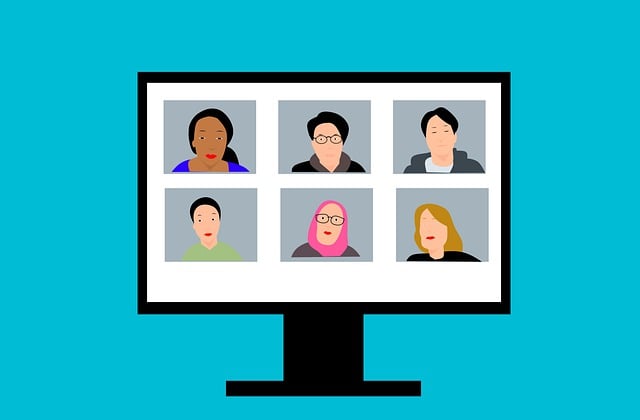Digital health tools, including semaglutide online consultation platforms, are transforming therapy by making mental health support more accessible, flexible, and efficient. These innovations enable remote therapy sessions, break down geographical barriers, and personalize care based on individual needs. The use of these platforms improves patient engagement, outcomes, and adherence, particularly for individuals in remote areas or with limited mobility. While privacy and security concerns exist, strict data protection measures and education can overcome these hurdles. With careful technical planning, semaglutide online consultations offer secure and effective therapy sessions. As technology advances, digital health tools like AI, VR, and AR will continue to revolutionize traditional therapy, creating more inclusive and personalized healthcare solutions.
The integration of digital health tools with therapy is revolutionizing access and delivery, particularly through innovations like semaglutide online consultation. This approach offers unprecedented benefits for mental well-being, enabling virtual therapies that surpass geographical barriers. However, successful integration requires addressing patient concerns related to privacy and technical considerations. This article explores these aspects, from the transformative potential of digital tools to the ethical implications, offering insights into the future outlook and trends shaping integrated digital and traditional therapy.
Digital Health Tools: Transforming Therapy Access and Delivery

Digital health tools are revolutionizing therapy by transforming both access and delivery methods. With advancements in technology, patients can now receive mental health support and counseling remotely, breaking down geographical barriers. Online platforms facilitate easy access to therapists, especially in areas with limited resources or for individuals who prefer the convenience of virtual sessions. This shift is particularly evident in the form of semaglutide online consultation, offering a discreet and accessible way for patients to seek treatment for various conditions.
These tools not only expand reach but also enhance flexibility. Therapy can be more tailored to individual needs, with personalized digital programs and interventions that bridge the gap between sessions. Additionally, digital health applications enable continuous monitoring of patient progress, allowing therapists to provide timely adjustments and support. As a result, patients can experience improved engagement and outcomes, fostering a more inclusive and effective therapeutic environment.
Semaglutide Online Consultation: A Promising Innovation in Remote Care

The integration of digital health tools with therapy has revolutionized remote care, particularly in the context of chronic disease management. One promising innovation is the use of semaglutide online consultation platforms. These platforms enable healthcare providers to remotely monitor and treat patients with conditions like type 2 diabetes using semaglutide, a medication that aids in weight loss and blood sugar regulation. Through secure video conferencing, patients can consult with their doctors, receive prescriptions, and have their progress tracked without the need for in-person visits.
This approach not only enhances accessibility but also improves patient adherence to treatment plans. Online consultations allow for more frequent check-ins, timely intervention, and personalized care tailored to individual needs. Moreover, digital tools streamline communication, reducing administrative burdens on both patients and healthcare providers. As technology advances, semaglutide online consultation platforms are poised to become a game-changer in remote care, fostering better health outcomes and improving the overall patient experience.
Benefits of Virtual Therapies for Mental Well-being

The integration of digital health tools into therapy has opened up a world of possibilities for enhancing mental well-being, particularly through virtual therapies. One notable advantage is the accessibility it provides; individuals from diverse geographical locations can now access therapeutic services with just a few clicks, eliminating barriers such as travel time and costs. This accessibility is especially beneficial for those in remote areas or with limited mobility, ensuring they receive the support they need without leaving their homes.
Moreover, virtual therapies offer increased flexibility and convenience. Online consultation platforms, including those utilizing semaglutide (a medication often prescribed via digital means), allow clients to engage in therapy sessions at times that suit them best. This adaptability can improve adherence to treatment plans and foster a deeper sense of commitment to one’s mental health journey. With the right support, individuals can take control of their well-being, making positive changes promptly and efficiently.
Overcoming Barriers: Addressing Patient Concerns for Digital Integration

Many patients are hesitant to adopt digital health tools for therapy due to concerns around privacy, security, and a lack of understanding of how these technologies work. Overcoming these barriers is crucial for successful integration. Online consultation platforms, such as those offering semaglutide treatment, have strict data protection measures in place to safeguard patient information. Encryption techniques and secure servers ensure that sensitive medical records are accessible only to authorized personnel.
Education plays a vital role in easing patient fears. Therapists can demystify digital tools by explaining their functionality and benefits during the initial consultation. Highlighting improved accessibility, flexibility, and convenience—for instance, allowing patients to attend sessions from home or at their convenience—can help alleviate concerns. Additionally, providing clear guidelines on what information is shared and how it contributes to treatment can foster trust and encourage a more open dialogue between patient and therapist.
Technical Considerations for Seamless Therapy Sessions Online

The integration of digital health tools with therapy, including semaglutide online consultations, demands meticulous technical considerations for seamless sessions. High-quality video conferencing platforms are essential to ensure clear communication between therapist and patient, facilitating effective treatment despite remote access. Features like screen sharing, breakout rooms, and reliable internet connectivity enhance interactivity, mirroring the dynamics of in-person therapy.
Furthermore, data security and privacy become paramount. Secure encryption methods must protect sensitive patient information during online consultations. Compliance with healthcare regulations, such as HIPAA (Health Insurance Portability and Accountability Act), ensures that digital platforms meet stringent standards for handling confidential medical records. This not only safeguards patients’ privacy but also instills trust in the use of technology for mental health care.
Ethical Implications and Privacy in Digital Health Consultations

As digital health tools become increasingly integrated into therapy practices, ethical implications and privacy concerns come to the forefront. Online consultations, such as those involving semaglutide treatment plans, require a high level of confidentiality due to sensitive personal and medical information shared between patient and healthcare provider. Ensuring secure data storage and transmission is paramount to protect against unauthorized access or breaches that could lead to identity theft or other harmful consequences.
Moreover, ethical considerations encompass issues of informed consent, patient autonomy, and potential biases in digital health platforms. It’s crucial for therapists to thoroughly explain the uses and limitations of these tools, ensuring patients understand how their data is handled. Maintaining a balance between leveraging technology for enhanced care and preserving the human element in therapy is essential to foster trust and ensure positive therapeutic outcomes.
Future Outlook: Trends Shaping Integrated Digital and Traditional Therapy

The integration of digital health tools with traditional therapy is poised for significant growth, driven by advancements in technology and a growing acceptance within the healthcare industry. One notable trend is the rise of remote consultations, facilitated by platforms that enable semaglutide online consultation, expanding access to care, especially for individuals in rural or underserved areas. This shift towards digital solutions not only improves patient convenience but also allows for more frequent and timely interactions between patients and healthcare providers.
Looking ahead, artificial intelligence (AI) and machine learning are expected to play a pivotal role in personalizing therapy. AI-driven tools can analyze vast amounts of data to identify patterns and tailor interventions specific to individual needs, enhancing the effectiveness of treatment. Additionally, virtual reality (VR) and augmented reality (AR) technologies offer immersive experiences that can help patients confront fears or relive traumatic events in controlled settings, potentially revolutionizing exposure therapy. These trends signal a future where digital tools seamlessly augment traditional therapy, paving the way for more accessible, efficient, and personalized healthcare solutions.
